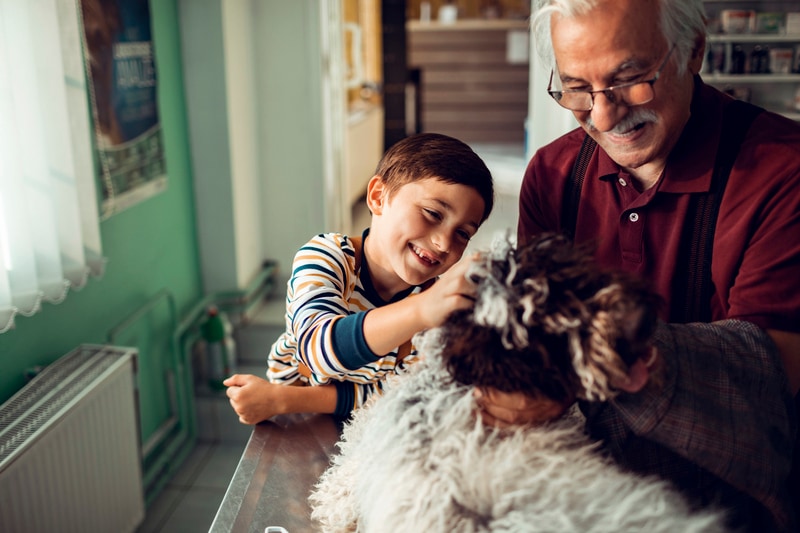Raising children has barely changed, in essence, since humans first crawled the Earth. Children are born; their parents try to raise them to survive into adulthood in order to create the next generation and send boxes of the finest chocolate and cheese back home when their parents get old. If they can do all of this without eating marbles, breaking the Tivo box or getting catastrophic exam results, so much the better.
But within this basic, fixed framework of existence, survival, procreation and chocolate delivery, each generation does things slightly differently from the one before. The rules change. Parenting methods and accepted norms evolve. Biscuits get bigger. Phones get smaller. Computer games get faster. The school run gets slower. We get ever more tired.
This is all expected. Society changes, and everything we do within our home and family lives adapts with that. One of the biggest shifts over time has been the relationship between parent and child, in terms of where children sit in life’s pecking order, and family hierarchy.
In the Dark Ages children were kept in the dark. They didn’t like it much, but it made bed times easier. In Victorian times children were seen but not heard. If they were heard, they were shoved up chimneys, or raised by Nanny McPhee.
Then one day someone invented Children’s Rights, and everything went to pot. These days children are not only seen, they are heard and heard and heard and… OH GOD PLEASE STOP TALKING NOW!
Children are even allowed to have opinions and thoughts these days. It’s utter madness. I jest, of course. This gradual, generational evolution and erosion of barriers and boundaries is to be welcomed. Very clever psychologists out there have found that having a happy childhood with good, close relationships with your parents is, amazingly enough, a positive thing. (It’s also good news for chimney sweep employment figures, as it happens, so everyone wins.)
Having a good, open relationship with our children is one of the best things we can do for them. Listening to them, letting them voice their opinions and learn to debate and argue, having a laugh with them, sharing lots of close times – it’s all a very normal part of parenting now.
But… is there a limit to this closeness, and this desired or created ‘equality’, which stops being good for children – and their parents? Can we be too friendly with our children? There is a growing trend for us to all be ‘mates’ with our kids now. Not parents, but best friends.
How Close Is Too Close?
To treat kids like our peers and equals, share the problems and events that are going on in our private, adult lives, interact on social media with them, and generally treat them as if they are on a level with us emotionally and socially.
This is all lovely and familiar, warm and friendly. It feels nice to be friends with our children. Of course it does! But there is a potential problem here. Children are not adults. And their parents are not their best mates. There is a boundary somewhere that needs to be established, where we are the parents, and they are very much the children.
This is not, as some people might understandably think, unkind, or needlessly authoritative; it actually helps children. Because much as we might want to share everything with them, feel connected to them in every way, bond with them, befriend them and so on, children are not developmentally able to understand or cope with many of the things in the adult domain. Financial worries, marital stress, job deadlines, news of illness or wider family issues – all of these are things that children can find very hard to deal with, even though we ourselves might feel a want, need or desire to share it all with them.
There’s also the issue of boundaries, and having lines that can’t be crossed. And having the word, or the concept, of ‘no’. Setting boundaries is vital for children. It creates a framework for them to live within, a structure, and a sense of security and understanding of how the world works. It also means they have something to fight against and try to break through!
So, far from being controlling or cold, being the parent, and keeping some distance – or difference – between you and your child, is actually helpful for them. They feel safer and more protected, knowing that there is an adult figure in their lives, who can deal with all the things they struggle with. Someone to defer to. To look after them. Taking this away, by equalizing ourselves with them, can make them feel vulnerable. It can also lead to conflicts where you can’t parent them anymore, because they think they are talking to a mate of theirs in the playground, not their mother or father.
A child doesn’t hate a parent who sets reasonable rules and sticks to them, or who doesn’t share everything with them. They know that’s just one of the roles of parents: to be in charge, and to deal with adult, parenty things. In an adult and parent way.
So be in charge. Don’t feel you need to be a best friend. Be a good parent. It’s what you’re there for!
Mother, Not Best Mate
With modern parent-child relationship becoming ever closer and more equal, Liz Fraser asks ‘can we become too friendly with our children?’
